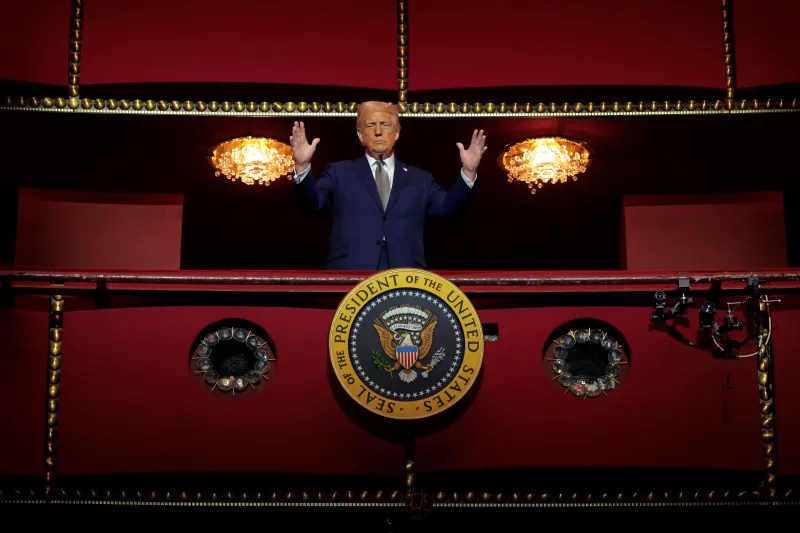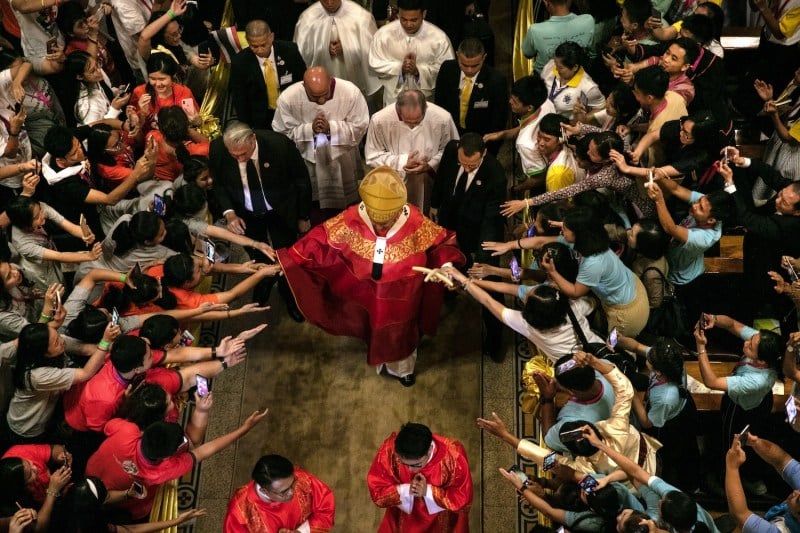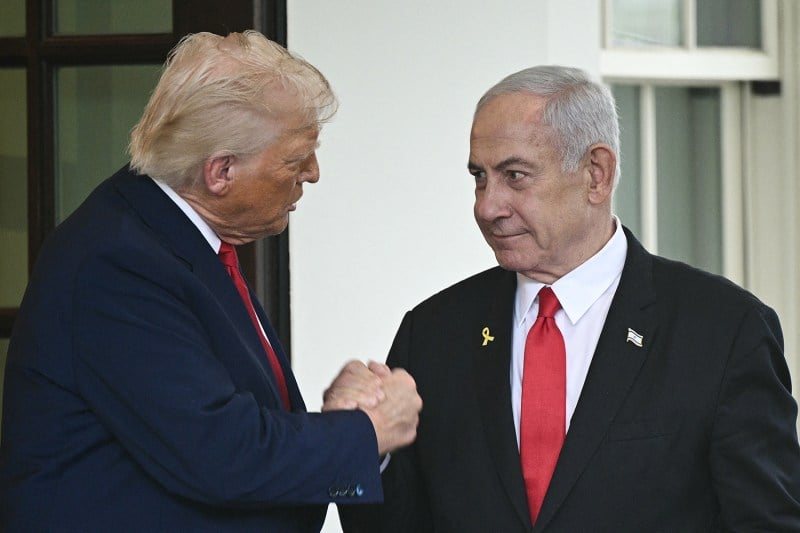Is Trump Executing a Self-Coup?

Is Trump Executing a Self-Coup?
Modern autocrats don’t openly declare their intention to kill democracy but erode it stealthily over time.
U.S. President Donald Trump at the John F. Kennedy Center for the Performing Arts in Washington on March 17. Chip Somodevilla/Getty Images
Modern autocrats understand the importance of being perceived as democratic—at least initially. Nevertheless, as they perform the most extravagant contortions to project an image of democratic legitimacy, they are quick to use their power to undermine the rule of law. They do not openly declare their intention to kill democracy, but they erode it stealthily, day by day, week by week, dismantling what they pretend to protect. It is a coup d’état, but in slow motion.
A coup d’état is the illegal seizure of power by violent or anti-constitutional means. The classic coup is a political earthquake, with dramatic scenes of tanks roaming the streets or planes bombarding the presidential palace. Self-coups, on the other hand, are a variant in which democratically elected leaders use their position to dismantle the institutional order and perpetuate their power.
Modern autocrats understand the importance of being perceived as democratic—at least initially. Nevertheless, as they perform the most extravagant contortions to project an image of democratic legitimacy, they are quick to use their power to undermine the rule of law. They do not openly declare their intention to kill democracy, but they erode it stealthily, day by day, week by week, dismantling what they pretend to protect. It is a coup d’état, but in slow motion.
A coup d’état is the illegal seizure of power by violent or anti-constitutional means. The classic coup is a political earthquake, with dramatic scenes of tanks roaming the streets or planes bombarding the presidential palace. Self-coups, on the other hand, are a variant in which democratically elected leaders use their position to dismantle the institutional order and perpetuate their power.
The most recent self-coup occurred in South Korea and failed. Last December, President Yoon Suk-yeol declared martial law, which placed all state control in his hands. But he failed to gain enough support from the military, the legislature, judges, and society in general. His attempt failed, and Yoon ended up in jail. Generally speaking, a self-coup does not work in the case of a weak leader. Another example is Pedro Castillo, the democratically elected president of Peru, who attempted to dissolve Congress in December 2022 without sufficient institutional or military backing. Castillo also ended up in prison.
Self-coups can be successful when the leader who carries them out does so by force. Former Peruvian President Alberto Fujimori is the classic example: In 1992, while he was still in power, he dissolved Congress and ruled by emergency decree with the backing of the country’s armed forces and its intelligence services. Meanwhile, Turkish President Recep Tayyip Erdogan has manipulated institutions and weakened the rule of law, but he has been careful not to be perceived as a dictator.
Self-coups have become more frequent. One-third of the 46 attempted self-coups since 1945 have occurred in the last decade, according to a vast dataset created by political scientists John Chin, David Carter, and Joe Wright. Another alarming fact is that, although only half of “traditional” coups since 1945 have been successful, more than four out of five self-coups led by democratically elected leaders have succeeded.
But there is another factor that has made self-coups more viable: the toxic combination of the three great evils of our political era: populism, polarization, and post-truth. This combination is creating a perfect breeding ground for self-coups to thrive.
Populism divides society between the “true people” and the “corrupt caste” that exploits them, thus justifying extreme actions against institutions that supposedly do not represent the people. Polarization turns political adversaries into irreconcilable enemies, eroding the ability to cooperate in defense of democracy. And post-truth allows leaders to create alternative narratives that justify their antidemocratic actions and confuse voters.
Most worrying is how this combination neutralizes citizens who would normally defend democracy. When a leader on one group’s side attacks institutions, people tend to justify it as “necessary” in the face of “threats” from the other side. Thus, a leader’s followers come to applaud measures that undermine democratic institutions, convinced that it is for the greater good. Even educated and civic-minded citizens can end up supporting a gradual self-coup, as long as it comes from “their side.”
The big question raised by the statistics on the success of self-coups is whether the United States will be able to dodge this global trend. More precisely, it is worth asking whether U.S. President Donald Trump is already deliberately undermining U.S. democracy. Were the events of Jan. 6, 2021, at the Capitol a dress rehearsal or a failed act that will not be repeated? Is the massive dismantling of federal institutions carried out by the teams led by Trump and Elon Musk unstoppable? How reversible are these changes?
In theory, democracy should function in such a way that civil and political rights are protected, as these tend to be violated when the executive branch acts with an inexhaustible hunger for power. In democracies, constitutions, laws, and legal precedents all play a fundamental role in preventing any of the various branches from amassing absolute power.
In the United States, these ideas, rules, and institutions are being put to the test in a variety of ways. Some of these are highly visible to the broader public, such as Trump’s moves to defund government agencies and programs that stand in the way of his plans. Others less so. One example is Trump’s decision to attack the law firms that represent individuals and institutions that are suing his administration. He has revoked security clearances of lawyers involved in the lawsuits and curtailed their access to federal buildings, as well as ordered his administration to initiate the process of rescinding government contracts with these firms.
Democracy is not just what happens on election day, but also what happens during the years of a presidential term. It is precisely during these intervals that self-coup attempts begin to take shape, supported by citizens who—blinded by polarization, populism, and post-truth—applaud the erosion of democracy.
This post is part of FP’s ongoing coverage of the Trump administration. Follow along here.
Moises Naim is a former editor in chief of Foreign Policy. He is a distinguished fellow at the Carnegie Endowment for International Peace and the author or editor of more than 15 books, including The Revenge of Power. X: @MoisesNaim
More from Foreign Policy
-

Periodic table The Periodic Table of States
The org chart for a post-Westphalian world.
-

French Emperor Napoleon Bonaparte leads the final assault by the Imperial Guard before his defeat at the Battle of Waterloo in what is today Belgium, on June 18, 1815. The Cost of Ignoring Geopolitics
Like Napoleon and the Ming dynasty, Europe is paying the price for strategic blindness.
-

Donald Trump holds solar eclipse glasses. What I Got Wrong About Trump’s Second Term
I didn’t entirely see this coming. Here’s why.
-

A woman walks past an advertisement for the Russian army at a bus stop. Russia Is Only Winning Inside Trump’s Head
As Russians will tell you, the reality on the ground looks very, very different.



![A person holds up a sign at a protest that reads: "Keep Your [picture of hands] OFF The Students"](https://foreignpolicy.com/wp-content/uploads/2025/03/Columbia-protests-GettyImages-2204533603.jpg?w=800?quality=80)




Join the Conversation
Commenting on this and other recent articles is just one benefit of a Foreign Policy subscription.
Already a subscriber?
.
Subscribe
Subscribe
View Comments
Join the Conversation
Join the conversation on this and other recent Foreign Policy articles when you subscribe now.
Subscribe
Subscribe
Not your account?
View Comments
Join the Conversation
Please follow our comment guidelines, stay on topic, and be civil, courteous, and respectful of others’ beliefs.
Change your username |
Log out
Change your username:
CANCEL
Confirm your username to get started.
The default username below has been generated using the first name and last initial on your FP subscriber account. Usernames may be updated at any time and must not contain inappropriate or offensive language.